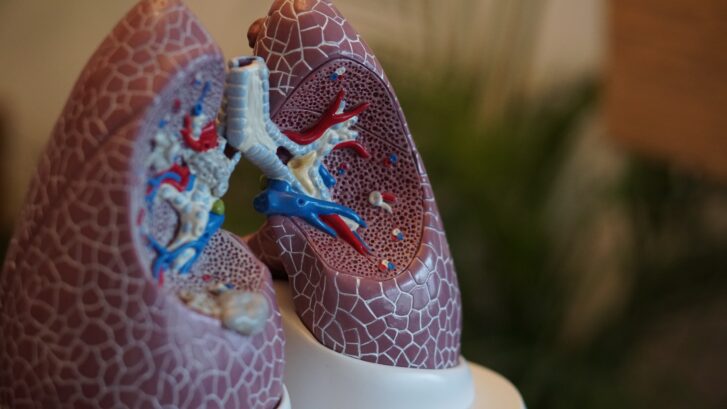Smoking and COVID-19: What You Need to Know
The annual Great American Smokeout is set for this week, November 19. So our concierge doctors thought this would be a good time to look into what we know about the combined effects of smoking and COVID-19.
This is especially important because there has been some confusing information on the effects of cigarette smoking on the disease, with some early reports even suggesting that cigarette smokers who contract COVID-19 actually fare better than non-smokers. Subsequent studies have found the opposite: that smoking increases the risk that the virus causes more damage in smokers.
Tobacco’s extensive effects
One study, reported in The Guardian, analyzed more than 11,000 COVID-19 patients. It found that about 30 percent of those with a history of smoking saw their conditions progress to a more severe or critical state, versus 17.6 percent of non-smokers. Researchers concluded that “smoking is a risk factor for progression of COVID-19,” with smokers nearly twice as likely to develop severe symptoms.
In addition to the well-known damage to the lungs and cardiovascular system—both of which are compromised by COVID-19—smoking has also been shown to suppress the immune system’s ability to fight infection in the body.
“Tobacco products cause inflammation in the airways and affect lung immunity, which makes people more susceptible to infection in general,” Dr. David Christiani, a professor at the Harvard TH Chan School of Public Health, told the paper.
In a scientific brief released this summer, the World Health Organization (W.H.O.) concluded that “the available evidence suggests that smoking is associated with increased severity of disease and death in hospitalized COVID-19 patients.”
The brief also reiterated that, in addition to the findings on the coronavirus, “Tobacco causes eight million deaths every year from cardiovascular diseases, lung disorders, cancers, diabetes, and hypertension.”
We believe it’s safe to add COVID-19 complications to that list.
Benefits of quitting
If you smoke, you’re not alone. More than 32.4 million people in the U.S. still smoke cigarettes, according the American Cancer Society (ACS). Unfortunately, as a result more than 16 million Americans live with a smoking-related disease.
But it’s never to late to quit.
Here’s a timeline from the ACS showing what happens when you stop smoking:
- Twenty minutes after quitting your heart rate and blood pressure drop.
- Twelve hours after quitting the carbon monoxide level in your blood drops to normal.
- Two weeks to three months after quitting your circulation improves and your lung function increases.
- One to nine months after quitting, coughing and shortness of breath decrease. Tiny hair-like structures (called cilia) that move mucus out of the lungs start to regain normal function in your lungs. This increases their ability to handle mucus, clean the lungs, and reduce the risk of infection.
- One year after quitting the excess risk of coronary heart disease is half that of someone who still smokes. Your heart attack risk drops dramatically.
- Five years after quitting your risk of cancers of the mouth, throat, esophagus, and bladder is cut in half. Cervical cancer risk falls to that of a non-smoker. Your stroke risk can fall to that of a non-smoker in two to five years.
- Ten years after quitting your risk of dying from lung cancer is about half that of a person who is still smoking. Your risk of cancer of the larynx and pancreas decreases.
- Fifteen years after quitting your risk of coronary heart disease becomes that of a non-smoker’s.
Ready to quit?
There are myriad ways to successfully stop smoking. What works for one person might not work for another. And studies show that the average smoker tries several times before giving up the addiction entirely.
“No matter your age or how long you’ve been smoking, quitting improves health, both immediately and over the long term,” the ACS says. “Giving up smoking is a journey, and it can be hard, but you can increase your chances of success with a good plan and support. Getting help through counseling and medications doubles or even triples your chances of quitting successfully.”
You can also download numerous quit-smoking apps to help, or find tools and tips at Smokefree.gov. The site also offers live chat help for those trying to quit. In addition, each state has a quit line, which you can access by dialing 1-800-QUIT-NOW (1-800-784-8669).
Of course there are various medications also available, so if you’re trying to stop smoking, please talk with us. We can help find the best path for you.
The coronavirus pandemic has had everyone on edge for months, and smoking may be one way you’ve used to cope. But, as with increasing alcohol or drug consumption, it’s unhealthy and ultimately unhelpful.

